CNC Machining Manufacturing
Find the best fit CNC machining service for your plastic and metal parts, and produce and deliver on-demand.
A RELIABLE MANUFACTURER
Bring your product from the design and prototyping stage to full production with our experience in manufacturing machined prototypes and production parts.
Looking for a competitive advantage, rapid turnaround supplier for your CNC machining project? QuickMachine is an expert in CNC machining service in China for both CNC prototypes and machined parts of end-use.
We provide CNC milling and CNC turning of various materials, as well as drilling, tapping, EDM (Electrical Discharge Machining), and wire EDM. Our ISO 9001 certified production process, combined with professional machining experience and advanced CNC machines ensures your parts are made right the first time, every time.
We are Good at the Processes of CNC Machining
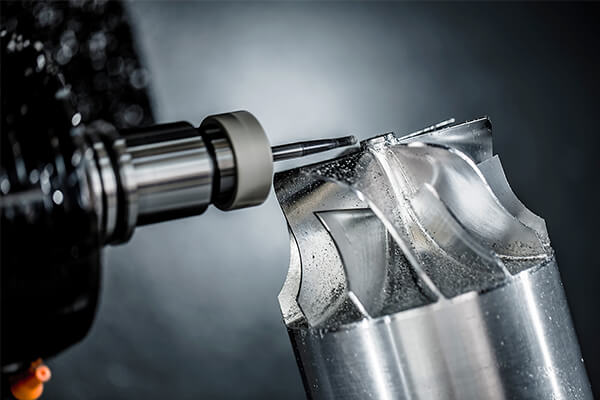
CNC Milling
CNC milling is a subtractive form of manufacturing that uses a cutting tool to moves and rotate to remove material. CNC mills can be used for cutting and machining operations of various plastic and metal materials. It is suitable for any industry that requires precision components and is also an ideal tool for making molds.
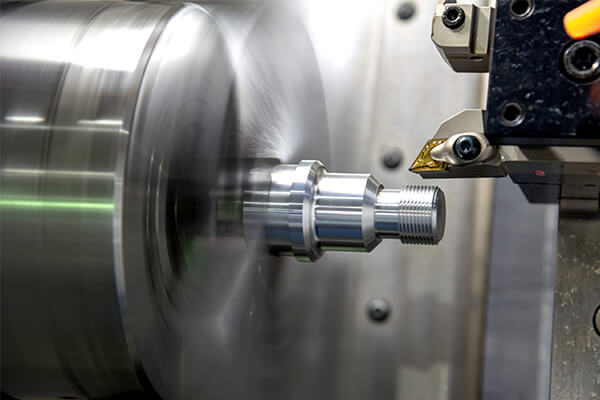
CNC Turning
CNC turning removes material by contacting a cutter with the high-speed rotating workpiece and is usually used to create round or tubular shapes. The CNC turning process allows the generation of complex external geometries and internal holes, including the machining of various threads.
5-Axis CNC Machining
5-axis CNC machining allows complex parts with multiple side features to process up to five sides in a single setup. This can pay big dividends in better machine utilization, reduce setups and cycle times, and improve quality. The ability of 5-axis machining will make our CNC shop more cost-effective for a wider range of work.
Precision CNC Machining
Need to achieve a tight tolerance of ±0.0005″ or better? With proven expertise, advanced CNC technology and inspection equipment, we have the experience to provide perfect accuracy and repeatability, even for the most complex parts. We are committed to providing precision CNC machining services to meet or exceed customer expectations.
Applications of CNC Machining
- Prototype Design Verification
- Create Metal Molds and Tooling
- Low-Volume Machined Parts of End-Use
- Machinable Custom Automotive Parts
- High Precision Machined Aerospace Components
- High-Performance Machined of Medical Devices Components
- Metal and Plastic Machining of Consumer Electronics
Prototype Machining for Your Design Verification and Engineering Testing
CNC prototyping is the process of creating plastic and metal prototypes through CNC machining, allowing your design team to closely simulate the appearance, function, and material properties of the final product, and test the suitability and manufacturability of components to prove and perfect their design.
We offer professional prototype machining services to ensure quality and accuracy, with a commitment to fast delivery.
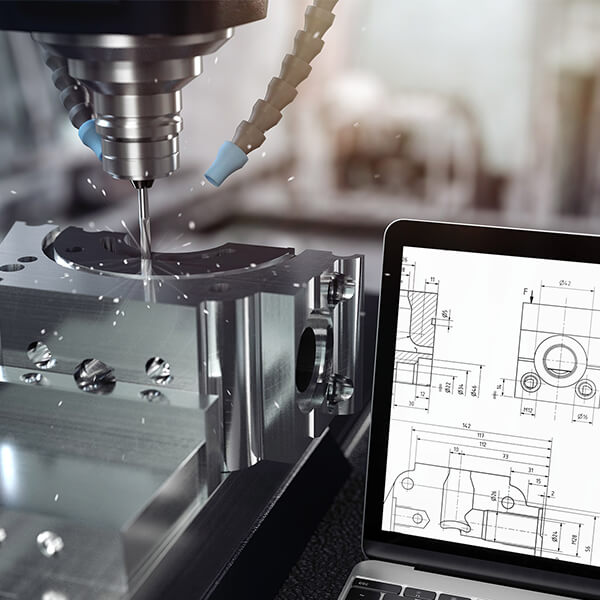
We specialize in high complexity and high precision prototype machining
– Creating fully functional engineering prototypes that allow you to examine and test the form, fit, and function of components in rigorous working scenarios to help prove and refine your designs.
– Creating aluminum prototypes of complex designs with extended and integrated machining processes gives us the ability to handle a wide variety of aluminum machining projects with extremely tight tolerance control and excellent surface finishes.
– Creating optical prototypes of clear acrylics, high-speed cutting for complex-shaped free-form surfaces and dense optical details using D0.1-D0.3 ultra-fine milling tools, providing micro-milling capability with excellent surface quality.
Custom Machining for Low-volume Production of End-use Components
The advantages of CNC machining are particularly well suited to the requirements of low volume production runs of custom parts, including accuracy and repeatability, flexible processes, as well as a wide range of material options, all of which help bring products to market faster.
Need 50 or 10,000 custom machined parts? We have the capability and experience to provide efficient custom CNC machining services at a reasonable price.
Choosing the Right Custom Machining Service
Finding a machining service that offers “made to order” can be a valuable addition to your supplier system.
QuickMachine has advanced machining equipment and flexible production methods, from simple milling or turning parts to complex and precision 5-axis CNC machining, from prototype plastic machining to accurate metal machining, we offer a well-rounded mix of advantages.
Our custom machine shop maintains 24/7 operations for optimal efficiency, quality and process control throughout the production machining process, from programming to machining to finishing. Our in-house production capabilities combined with the ability to integrate external manufacturing resources allow us to have a quick turnaround to meet any of your custom machining needs. That’s why we can be competitive for your low volume CNC machining projects.
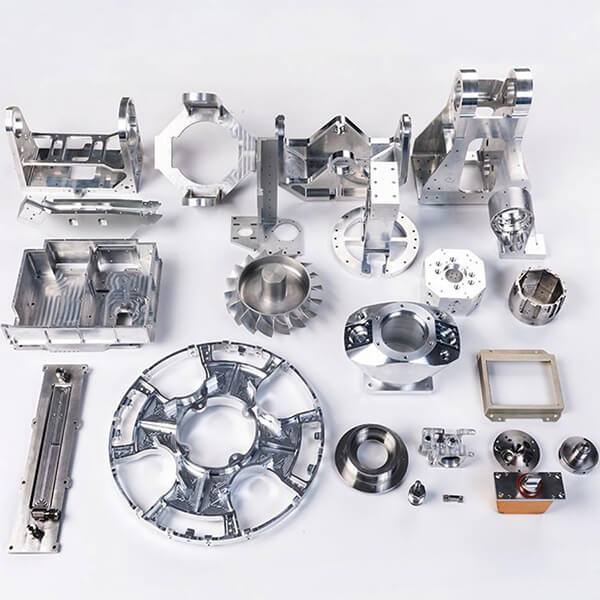
Our Advantages in CNC Machining
- An Experienced Team with Expertise
- Advanced In-house Equipments
- Competitive Prices in the Industry
- One-To-One Collaboration & Proactive DFM
- High Complexity Machining Capability
- Industry-Leading Turnaround Times
CNC Machining Materials & Finishes
We have more than 30 engineering-grade plastic and metal materials that are suitable for CNC machining applications in various industries.
-Plastic: ABS, PC, ABS+PC, PMMA(Acrylic), PA(Nylon), PA+GF30, POM(Acetal / Delrin), PP, PVC, HDPE, PPS, PEEK, PEI(Ultem), Teflon, Bakelite Resin, Epoxy Tooling Board.
-Metal: Aluminum, Steel, Stainless Steel, Brass, Bronze, Copper, Magnesium Alloy, Titanium Alloy, Zinc Alloy.
-Finishes: We support one-stop CNC machining surface finishing to meet the visual and functional requirements of any design. Including sanding, sandblasting, mirror polishing, painting, printing, laser etching, anodizing, electroplating, chroming, powder coating, etc.
CNC Plastic Machining
More than 30 engineering-grade materials can be used for CNC plastic machining. The machined plastic parts are 100% functional and able to be mechanically tested.
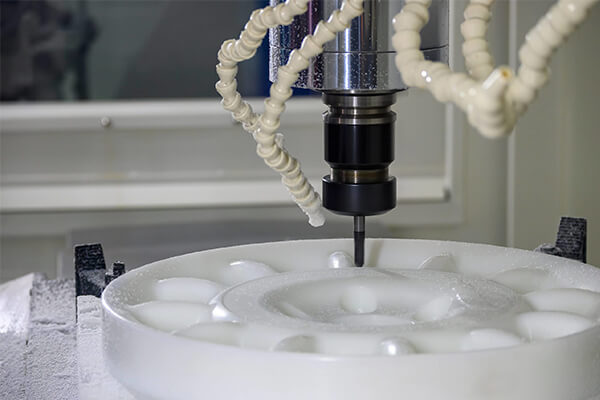
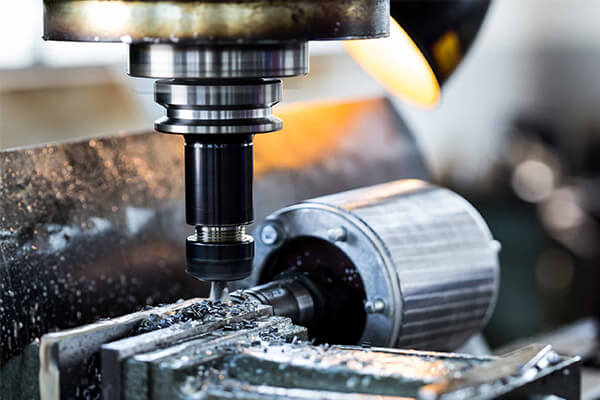
CNC Metal Machining
Whether it is prototypes or end-use parts, our mastery of CNC metal machining techniques helps us achieve tighter tolerances, faster turnaround times, and more challenging manufacturing projects.
Our CNC Machine Tools
Put Your CNC Parts Into Production Today.
| Basic Size Range | Fine | Medium | Coarse | Very Coarse |
|---|---|---|---|---|
| 0.5 up to 3 | ± 0.05 | ± 0.1 | ± 0.2 | - |
| Over 3 up to 6 | ± 0.05 | ± 0.1 | ± 0.3 | ± 0.5 |
| Over 6 up to 30 | ± 0.1 | ± 0.2 | ± 0.5 | ± 1 |
| Over 30 up to 120 | ± 0.15 | ± 0.3 | ± 0.8 | ± 1.5 |
| Over 120 up to 400 | ± 0.2 | ± 0.5 | ± 1.2 | ± 2.5 |
| Over 400 up to 1000 | ± 0.3 | ± 0.8 | ± 2 | ± 4 |
| Over 1000 up to 2000 | ± 0.5 | ± 1.2 | ± 3 | ± 6 |
| Over 2000 up to 4000 | - | ± 2 | ± 4 | ± 8 |
CNC Machining Tolerances
QuickMachine’s general tolerance is applied to ISO 2768 (medium) for machined plastic and ISO 2768 (fine) for machined metals. Typically, we can hold a CNC machining tolerance from ±0.005″ (±0.125mm) to ±0.002″ (±0.05mm). If tighter tolerances are required, a 2D drawing with complete information will be necessary. Our engineering team will communicate with you the critical dimensional tolerances and provide the highest degree of precision possible.
Design For Manufacturability
A Quick Guide to Designing CNC Machined Parts
Optimize your designs to avoid unnecessary machining features, limit part complexity, help reduce machining time and costs, and create machined parts faster and more efficiently.
As large an internal radius as possible
Any internal cut will generate a fillet that is half the diameter of the tool used. Milling with smaller tools takes a long time and we recommend that the radius should be greater than 1/3 of the depth of machining. The best bet is to relieve internal corners or allow for as large an internal radius as possible on mating part designs and use the same radius on all inside edges so that the same tool can be used throughout the process.
Avoid overly deep cavities, grooves and holes
The depth of the cavity and groove is usually related to the diameter of the tool used to make the internal fillets, and a good rule of thumb is to keep the cavity depth 3 – 4 times the tool diameter or the groove depth less than 4 times the feature width. Whether blind holes or through holes, the recommended maximum depth is 4 times the diameter and the minimum hole diameter is 1 mm, and it is recommended to design standard size holes. With a standard drill, holes can be machined quickly and with high precision; for non-standard holes, using an end mill will increase costs.
Avoid thin walls
As with tall walls, vibration increases when machining thin features. As a guide, the minimum thickness of thin-walled metal parts should be 0.5-0.8 mm, and the minimum thickness of plastic parts should be 1.0- 1.5 mm. If the walls are for supporting action or taller features, the wall thickness should be increased to avoid vibrations during machining.
Avoid small or raised text
You may need to mark parts with part numbers or company names. Adding text looks really cool, but is time-consuming to process; electrochemical etching or laser marking is usually better. If you must cut text, choose recessed rather than raised text whenever possible, keep it simple and large, with a font depth of no more than 0.3mm.
Stick to the standards for threads
Sticking to standard sizes is also important when creating threads. Length should be kept to a maximum of 3 times the nominal diameter of a hole. For blind hole tapping, it is preferable to add an additional length of at least 1/2 hole diameter at the root of the hole. You might also think about using inserts. threaded coils and brass nuts provide longer service life than bare threads, especially in soft materials such as aluminum or plastic, and are easy to install.
Complete CNC machining services from prototype to production ensure high quality, fast delivery and competitive prices.
Quote Now to Start Your CNC Machining Project
